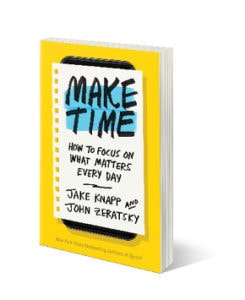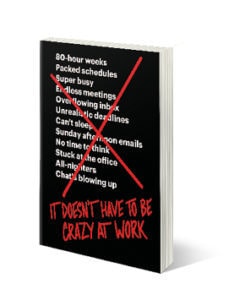Tuesday, 10 December 2019
Monday, 11 November 2019
10 Tips to Succeed in the Business of Life
10 Tips to Succeed in the Business of Life
By SUCCESS Staff |

1. Get predictable.
Doubt over predictable income scares too many people from joining the YouEconomy. This weekend, take time to sketch a plan to keep checks rolling in from the same clients at regular intervals.2. Follow your mind.
Exercise your curiosity muscles. During a break in work, allow yourself to go down a Wikipedia rabbit hole, clicking links to new pages and learning about things you didn’t even know existed.3. Scare yourself.
Plan to do something that freaks you out a little bit. Whether it’s something death defying, like skydiving, or makes you anxious like speaking to a stranger on the train, push your boundaries.4. Log your hours.
This month, keep track of how many hours you work and what you got done. There’s nothing wrong with putting in a lot of time at the mine, but if you see lagging results, you’ll know when to recharge.5. Find a buddy.
If you have a health goal in mind, enlist a friend or family member to join you on your quest today. Accountability partners make the road to success not only easier, but more enjoyable.6. Be kind.
Poor self-image can be deflating, and it starts with telling yourself you aren’t good enough. Tonight make a short list of acts to remind yourself of the good you brought to other people today.7. Think ahead.
You’re going to be old one day! But you get to decide when. Look at all your habits and food cravings. Pick out two bad ones and make a plan to scale back and replace them with better alternatives.8. Say thanks.
Our relationships shape us. This week, schedule time to reach out to someone close—a friend or family member—who you don’t speak to enough. Share a laugh and a thank you for them being in your life.9. Fix it.
Often enough you’ll encounter a status quo that just doesn’t work right or isn’t fair. Make it your mission to not complain about it. Instead, think of a way you personally can create change.10. Treat yourself.
Happiness is a choice. No matter how packed your schedule is, pick out two hours this coming Saturday that are just for you. Take yourself on a date—do only things that you absolutely love.Related: 10 Tips to Change Your Life for the Better
Read These 6 Books to Make the Best Decisions for Your Mind, Body and Soul
Read These 6 Books to Make the Best Decisions for Your Mind, Body and Soul

 1. Make Time
1. Make Time
How to Focus on What Matters Every Day
By Jake Knapp & John ZeratskyIn a world obsessed with getting more done, there’s no lack of books available on time management. But few explain it as effectively and simply as Jake Knapp and John Zeratsky, who co-wrote a previous New York Times best-seller, Sprint, and created the Time Dorks newsletter.
The new book offers ways to make the most out of each day using lists, fun graphics, and little blurbs. In total, it offers 87 tactics to improve your time management, ranging from managing your email better, avoiding devices when you can, and fitting in a quick workout. But the advice also dives deeper. Knapp and Zeratsky ask readers to question things like how much daily news they really need to consume. By shifting your focus away from things that don’t really matter, you can spend time on the things that do. (September; Currency; $27)
 2. It Doesn’t Have to Be Crazy at Work
2. It Doesn’t Have to Be Crazy at Work
How Collaborative Problem Solving Changes Lives at Home, at School, and at Work
By Jason Fried & David Heinemeier HanssonThe 40-hour work week doesn’t always end at 40 hours. Many employees are expected to answers emails at late hours or on vacation, or put in extra time to get projects done. But it doesn’t have to be that way, argue authors Jason Fried and David Heinemeier Hansson, the co-founders of the workplace software company Basecamp.
The authors offer strategies to create a workplace with less stress and anxiety. They call it a “calm company,” one that “isn’t fueled by stress, or ASAP, or rushing, or late nights, or all-nighter crunches, or impossible promises, or high turnover, or consistently missed deadlines, or projects that never seem to end.” To create a calm company, the duo writes, a business needs to be reasonable in the expectations it set of its employees, and also look for ways to maximize usage of time—nobody likes attending an hour-long meeting that could have been one simple email (October; HarperBusines; $28)
 3. The Laws of Human Nature
3. The Laws of Human Nature
By Robert GreeneThe author of five international bestsellers, most notably The 48 Laws of Power, Robert Greene looks into ways we can examine our own behavior, and also that of others, to adapt and strategize. His newest book argues that because most of our interactions now happen online instead of face-to-face, our ability to read others has weakened.
To combat that, he offers tools and tips to read the emotions of others, their nonverbal cues, and to understand how we can use these skills to make smart decision like: Should I trust this person? Should I vote for this politician?
Greene uses examples from history—like how Queen Elizabeth I used empathy to lead her country or the ways Martin Luther King, Jr. managed his emotions during the civil rights movement—and follows up the historic stories with insights to interpret and understand their lessons. (October; Viking; $30)
 4. Radical Generosity
4. Radical Generosity
Unlock the Transformative Power of Giving
By M.J. RyanIn Radical Generosity, M.J. Ryan describes a common “ledger sheet mentality” that views giving, whether of yourself or a gift, as obligatory—too many of us give because of what we got, or expect to get next time.
She pushes readers to look deeper into generosity and to practice more of it in everyday life. At times the heartfelt advice may seem a little vague or hard to put into practice: “Generosity is also about letting go of grudges, hurts, and concepts of ourselves and the world that stand in the way of our connection to others.” But readers can find ways to make personal connections through her essays. By putting her advice in play, the next time a friend’s birthday comes around, you may give because you want to, not because you feel you must.
Consider Ryan’s influence. Organizations like Microsoft, Time, the U.S. military and AON Hewitt have come to her for help as an executive coach. (October; Conari Press; $17)
 5. Can You Learn to Be Lucky?
5. Can You Learn to Be Lucky?
Why Some People Seem to Win More Often Than Others
By Karla StarrA serious car accident left Karla Starr with broken bones and internal bleeding. She accumulated more than $200,000 in medical bills and had to declare bankruptcy to get rid of the debt. Starr wondered why it happened to her. Eventually she realized it “just happened.” Was it bad luck she had the wreck, or good that she survived?
For the past seven years, Starr has been searching for an answer on whether luck is real. She has interviewed admissions officers, casting directors and people in neuroscience. Her conclusion? “[It’s] unrealistic to accept that uncontrollable events or external luck exists…
[U]nderstanding what is and isn’t out of our hands can increase our chances of finding success by allowing us to focus on what we can change.”
In her first book, Starr teaches readers that luck might be something you can make yourself, offering techniques that have worked for others. (August; Portfolio; $27)
 6. Thirst
6. Thirst
A Story of Redemption, Compassion, and a Mission to Bring Clean Water to the World
By Scott HarrisonScott Harrison was making $200,000 a year and had a loft in New York City with a baby grand piano in the living room. But he was also living hard—smoking, drinking and abusing drugs. Every night Harrison would think to himself, “This is not who I am. This is not who I want to be.” So he decided to turn his life around. He spent 16 months on a hospital ship in West Africa on a photojournalist assignment, and discovered himself.
In 2006, he became the founder and CEO of charity : water, which helps bring clean drinking water to more than 8 million people around the world. In Thirst, Harrison tells his story of reinvention. This is not a guide to turning your life around, just the inspiring story of someone who did. But it might spur you to make changes of your own, for the good of those around you. (October; Currency; $27)
Related: Read These 6 Books to Create Positive Change
John Addison: How to Find Your ‘Why’ in Life
John Addison: How to Find Your ‘Why’ in Life
By John Addison

In 1981, after I’d been working at Life of Georgia for about a year, I was moved into their management trainee program. A lovely, very intelligent young woman named Loveanne was hired to replace my old position. I was smitten and luckily she was, too. About a year later, we were married, and more than 30 years later, I can honestly still say she is the best thing that ever happened to me.
She also changed my outlook on my future. I hadn’t been really motivated or aspired to greatness. Heck, I considered it a win if I had enough money left over after paying my share of the rent and bills to have a fun weekend. But, now I was married. I had another person to think about. And I wasn’t married to just anyone. I was married to Loveanne. Suddenly, I was plugged into a whole new “why.”
German philosopher Frederick Nietzsche once said, “He who has a why can endure any how.” Your why is the thing that motivates you to get up every morning and work a little harder to get a little better. It’s the thing that pushes you even on the days when all you want to do is pull the covers over your head and hide from the world. Your why may change throughout your life, as you get married, have a family, have to care for aging parents, etc., but the questions you have to ask yourself in order to stay focused on it and overcome all the obstacles you will inevitably face remain largely the same.
Once you come up with your definition, dig a little deeper and ask yourself why that is your definition of success. The deeper you dig, the clearer your why becomes and the more motivated you will become to reach it.
So, how are you going to work toward that? How are you going to change your current circumstances (or use them as a jumping off point) to reach that end goal? It may not be something you can do overnight, but it can be the why that gets you up in the morning and motivates you to give your all now so you can have the future you dream of.
One of the biggest whys in my life has been making Loveanne proud. I try to do it both professionally and in our personal lives. It’s what I’m passionate about, and when I do make her proud, I feel like I’ve succeeded. You won’t ever reach your goals unless you do plug into your why and reassess from time to time to make sure you are still plugged into it. But if you are plugged into your why, the how will never be a problem.
Follow John Addison’s 9 simple practices for leading and living with purpose in his Real Leadership Roadmap, a four-week training course brought to you by SUCCESS Academy.
She also changed my outlook on my future. I hadn’t been really motivated or aspired to greatness. Heck, I considered it a win if I had enough money left over after paying my share of the rent and bills to have a fun weekend. But, now I was married. I had another person to think about. And I wasn’t married to just anyone. I was married to Loveanne. Suddenly, I was plugged into a whole new “why.”
German philosopher Frederick Nietzsche once said, “He who has a why can endure any how.” Your why is the thing that motivates you to get up every morning and work a little harder to get a little better. It’s the thing that pushes you even on the days when all you want to do is pull the covers over your head and hide from the world. Your why may change throughout your life, as you get married, have a family, have to care for aging parents, etc., but the questions you have to ask yourself in order to stay focused on it and overcome all the obstacles you will inevitably face remain largely the same.
What is my definition of success?
Your definition is yours, no one else’s, so you don’t need anyone’s approval and you don’t have to alter it to fit into some little “acceptable” box. But you do have to know what your definition of success is or you won’t know what your end goal is or why you’re working for it. If you define success as being able to pay the mortgage and keep the lights on and that’s what motivates you, there’s nothing wrong with that.Once you come up with your definition, dig a little deeper and ask yourself why that is your definition of success. The deeper you dig, the clearer your why becomes and the more motivated you will become to reach it.
What am I passionate about?
Skill and passion are often confused for one another, but they aren’t at all interchangeable. You can be really good at what you’re doing, and not only not be passionate about it, but also totally loathe it. So, ask yourself if you’re passionate about what you’re doing and, if not, what you are passionate about. What excites you? What gets you going and motivates you to keep going? Find your why and then pursue it with gusto.
Related: How to Carve Out Your Life’s Passion
You will find more personal and professional fulfillment at the place where natural talent and skill meets your personal passion. That is the place where you will find your motivation and be able to maintain it for the long haul.If money were no object, what would I do?
To some degree money is a driver for all of us. Maybe it’s not the main driver, but you know it totally is one. So, look at the job you’re doing every day and ask yourself if you’d still be doing it if money was no object. What would you do? Be realistic—odds are, you aren’t going to be a professional athlete or runway model—but really think about what your dream circumstance would be. If it’s not, you’re in a j-o-b when what you need to be in is a career—a career you love and look forward to giving your all so you can be your best.So, how are you going to work toward that? How are you going to change your current circumstances (or use them as a jumping off point) to reach that end goal? It may not be something you can do overnight, but it can be the why that gets you up in the morning and motivates you to give your all now so you can have the future you dream of.
One of the biggest whys in my life has been making Loveanne proud. I try to do it both professionally and in our personal lives. It’s what I’m passionate about, and when I do make her proud, I feel like I’ve succeeded. You won’t ever reach your goals unless you do plug into your why and reassess from time to time to make sure you are still plugged into it. But if you are plugged into your why, the how will never be a problem.
Follow John Addison’s 9 simple practices for leading and living with purpose in his Real Leadership Roadmap, a four-week training course brought to you by SUCCESS Academy.
John Addison is the Leadership Editor for SUCCESS and the author of Real Leadership: 9 Simple Practices for Leading and Living with Purpose, a Wall Street Journal and USA Today best-seller. Renowned for his insight and wisdom on leadership, personal development and success, John is a sought-after speaker and motivator. Read more on his blog, and follow John on Facebook and Twitter.
Sunday, 10 November 2019
Do These 30 Things If You Want to Be Unstoppable
Do These 30 Things If You Want to Be Unstoppable

A lot of people are good at what they do. Some are even elite. A select few are completely unstoppable.
Those who are unstoppable are in their own world. They don’t compete with anyone but themselves. You never know what they will do—only that you will be forced to respond. Even though they don’t compete with you, they make you compete with them.
Are you unstoppable? By the end of this blog you will be.
Let’s get started:
Rather than analyzing and thinking, act. Attuned to your senses, and with complete trust in yourself, do what you instinctively feel you should. As Oprah has said, “Every right decision I have ever made has come from my gut. Every wrong decision I’ve made was the result of me not listening to the greater voice of myself.”
The moment you start thinking, you’ve already lost. Thinking swiftly pulls you out of the zone.
Become a master of your craft. While everyone else is relaxing, you’re practicing and perfecting. Learn the left-brained rules in and out so your right brain can have limitless freedom to break the rules and create.
With enhanced consciousness, time will slow down for you. You’ll see things in several more frames than others. While they’re trying to react to the situation, you’ll be able to manipulate and tweak the situation to your liking.
Even after you achieve a goal, you’re not content. For you, it’s not even about the goal. It’s about the climb to see how far you can push yourself.
Does this make you ungrateful? Absolutely not. You’re entirely humbled and grateful for everything in your life. Which is why you will never get complacent or lazy.
Act based on instinct, not impulse. Just because you could doesn’t mean you do. And when you do, it’s because you want to, not because you have to.
Have the self-respect and confidence to live life on your terms. When something isn’t right in your life, change it. Immediately.
Most people can handle pressure in small doses. But when left to their own devices, they let off the pressure and relax.
Not you. You never take the pressure off yourself. Instead, you continuously turn-up the pressure. It’s what keeps you alert and active.
Conversely, you’ve left all competition behind. Competing with others makes absolutely zero sense to you. It pulls you from your authentic zone. So you zone out all the external noise and instead zone in to your internal pressure to produce.
Your unparalleled preparation is what gives you power. No one else is willing to pay the price you’ve paid.
Most people can’t handle success, authority or privilege. It destroys them. It makes them lazy. When they get what they want, they stop doing the very things that got them there. The external noise becomes too intense.
But for you, no external noise can push harder than your own internal pressure. It’s not about this achievement, but the one after, and the one after that. There is no destination. Only when you’re finished.
No blame. No deception or illusion. Just the cold hard truth. When you mess up, you own it. And as the leader, you own it when your team fails. Only with extreme ownership can you have complete freedom and control.
Cal Newport’s recent book, Deep Work, distinguishes “deep work” from “shallow work.” Here’s the difference:
Deep work is:
The better you can be under pressure, the further you’ll go than anyone else. Because they’ll crumble under pressure.
The best training you will ever do is mental training. Wherever your mind goes, your body follows. Wherever your thoughts go, your life follows.
Your confidence determines:
Surrounding yourself with people who you want to be like allows you a fresh slate. You’re no longer defined by your past, only the future you are creating.
According to loads of psychology research, the most motivating goals are clearly defined and time-bound.
For most people, behaviorally-focused goals are the better and more motivating option. But when you crave the results so much that the work is irrelevant, your aim should be directed straight at the outcomes you want. However, results-focused goals are better when short-term and grounded in your long-term vision and philosophy. When your why is strong enough, the how will take care of itself.
Anticipation of an event is always more extreme than the event itself—both for positive and negative events.
Just do it. Train yourself to respond immediately when you feel you should do something. Stop questioning yourself. Don’t analyze it. Don’t question if it came from God or from yourself. Just act.
You’ll figure out what to do after you’ve taken action. Until you take action, it will all be hypothetical. But once you act, it becomes practical.
It’s easy to be complicated. Most of the research and jargon in academia and business is over-complicated.
Cutting to the core and hitting the truth is hard, because it’s simple. As Leonardo da Vinci has said, “Simplicity is the ultimate sophistication.”
Very few people will give you the truth. When you ask them a question, it gets mighty complicated. “There are so many variables” or “It depends” they say.
T. S. Eliot said it best, “Where is the wisdom we have lost in knowledge? Where is the knowledge we have lost in information?”
Wisdom is timeless and simple. Learn wisdom and choose it.
The reason you are happy for other people’s success is because their success has nothing to do with you.
You are in control of you. And you are different from every other person. There is no one who can do exactly what you can do. You have your own superpower with your own unique ability to contribute. And that’s what you’re going to do.
You miss every shot you don’t take. And most people don’t want to take the shot. Fear of failure paralyzes them.
The only way you can become unstoppable is if you stop thinking about it. Just take the shot. Don’t do it only when it’s convenient or when you feel ready. Just go and make whatever adjustments you need after the fact.
Most people—even those you deem to be “world class”—are not operating at 10X. In truth, you could surpass anyone if you radically stretch your thinking and belief system.
Going 10X changes everything. As Dan Sullivan has said, “10X thinking automatically takes you ‘outside the box’ of your present obstacles and limitations.” It pulls you out of the problems most people are dealing with and opens you to an entirely new field of possibilities.
When you take your goal of earning $100,000 this year and change it to $1,000,000, you’re forced to operate at a different level. The logical and traditional approach doesn’t work with 10X. As Shane Snow, author of Smartcuts: How Hackers, Innovators, and Icons Accelerate Success, has said, “10x progress is built on bravery and creativity instead. Working smarter.”
The question is: Are you willing to go there? Not just entertain the thought for a second or two and then revert back to common thinking. No. Are you willing to sit with 10X thinking? Are you willing to question your own thought processes and open yourself to believing an entirely different set of possibilities?
Could you convince yourself to believe in your 10X potential? Are you willing to undertake goals that seems lunacy, to you and everyone else? Are you willing to take the mental leap, trusting “the universe will conspire to make it happen”?
If your goals are logical, they won’t force you to create luck. Being unstoppable means your goals challenge you to be someone more than you currently are. As Jim Rohn has said, “Don’t wish it was easier, wish you were better.”
When you focus on results, rather than being busy, you’re 100 percent on when you’re working and 100 percent off when you’re not. This not only allows you to be present in the moment, but it allows you the needed time to rest and recover.
Your ability to work at a high level is like fitness. If you never take a break between sets, you won’t be able to build strength, stamina and endurance. However, not all “rest” produces recovery. Certain things are more soothing than others.
Recovering from my work generally consists of writing in my journal, listening to music, spending time with my wife and kids, preparing and eating delicious food, or serving other people. These things rejuvenate me. They make my work possible, but also meaningful.
Most people wait. They believe they can start after they have enough time, money, connections and credentials. They wait until they feel “secure.” Not people who are unstoppable.
Unstoppable people started last year. They started five years ago before they even knew what they were doing. They started before they had any money. They started before they had all the answers. They started when no one else believed in them. The only permission they needed was the voice inside them prompting them to move forward. And they moved.
He tells every one of them the same thing: that they shouldn’t do it. In fact, he actually tries talking most of them out of it. And in most cases he succeeds.
Why would he do that? “Those who are going to succeed will do so regardless of what I say,” he told me.
I know so many people who chase whatever worked for other people. They never truly decide what they want to do, and end up jumping from one thing to the next—trying to strike quick gold. And repetitively, they stop digging just a few feet from the gold after resigning the spot is barren.
No one will ever give you permission to live your dreams.
Yet, he says that decision changed his life. As he explains:
“Had I bowed to my human, physical, emotional and mental desire to sleep in, I would have made that exception. A week later, I might have made an exception if I only got four hours of sleep. A week later, maybe I only got seven hours of sleep. The exception so many times becomes the rule. Had I slept in, I would’ve faced that danger. Watch those exceptions!”
Hence, Zig was unstoppable.
“From this point, your strategy is to make everyone else get on your level, you’re not going down to theirs. You’re not competing with anyone else, ever again. They’re going to have to compete with you. From now on, the end result is all that matters.” — Tim Grover
When you’re unstoppable, you will make sure to get what you want. Everything you need to know is already within you. All you need to do is trust yourself and act.
Are you unstoppable?
Those who are unstoppable are in their own world. They don’t compete with anyone but themselves. You never know what they will do—only that you will be forced to respond. Even though they don’t compete with you, they make you compete with them.
Are you unstoppable? By the end of this blog you will be.
Let’s get started:
1. Don’t think—know and act.
“Don’t think. You already know what you have to do, and you know how to do it. What’s stopping you?” — Tim Grover, author of Relentless: From Good to Great to UnstoppableRather than analyzing and thinking, act. Attuned to your senses, and with complete trust in yourself, do what you instinctively feel you should. As Oprah has said, “Every right decision I have ever made has come from my gut. Every wrong decision I’ve made was the result of me not listening to the greater voice of myself.”
The moment you start thinking, you’ve already lost. Thinking swiftly pulls you out of the zone.
2. Always be prepared so you have the freedom to act on instinct.
“Just as the yin-yang symbol possesses a kernel of light in the dark, and of dark in the light, creative leaps are grounded in a technical foundation.” — Josh Waitzkin, author of The Art of Learning: An Inner Journey to Optimal PerformanceBecome a master of your craft. While everyone else is relaxing, you’re practicing and perfecting. Learn the left-brained rules in and out so your right brain can have limitless freedom to break the rules and create.
With enhanced consciousness, time will slow down for you. You’ll see things in several more frames than others. While they’re trying to react to the situation, you’ll be able to manipulate and tweak the situation to your liking.
3. Don’t be motivated by money or anything external.
Having nice things is, well, nice. But for you, it’s never been about the money, prestige or anything else outside of you. Take these things away and nothing changes for you. You’re still going to be pushing your personal limits and giving it your all. Give these things to you and they won’t destroy you like they do most people.4. Never be satisfied.
“The drive to close the gap between near-perfect and perfect is the difference between great and unstoppable.” — Tim GroverEven after you achieve a goal, you’re not content. For you, it’s not even about the goal. It’s about the climb to see how far you can push yourself.
Does this make you ungrateful? Absolutely not. You’re entirely humbled and grateful for everything in your life. Which is why you will never get complacent or lazy.
5. Always be in control.
Unlike most people, who are dependent on substances or other external factors, you are in control of what you put in your body, how you spend your time and how long you stay in the zone.Act based on instinct, not impulse. Just because you could doesn’t mean you do. And when you do, it’s because you want to, not because you have to.
6. Be true to yourself.
Although 70 percent of US employees hate their jobs and only one in three Americans report being happy, relentless and unstoppable people purge everything from their life they hate.Have the self-respect and confidence to live life on your terms. When something isn’t right in your life, change it. Immediately.
Related: How to Find Your ‘Why’ in Life
7. Never let off the pressure.
“Pressure can bust pipes, but it also can make diamonds.” — Tim GroverMost people can handle pressure in small doses. But when left to their own devices, they let off the pressure and relax.
Not you. You never take the pressure off yourself. Instead, you continuously turn-up the pressure. It’s what keeps you alert and active.
8. Don’t be afraid of the consequences of failure.
Most people stay close to the ground, where it’s safe. If they fall, it won’t hurt that bad. But when you choose to fly high, the fall may kill you. And you’re OK with that. To you, there is no ceiling and there is no floor. It’s all in your head. If something goes wrong—if you “fail”—you adjust and keep going.9. Don’t compete with others. Make them compete with you.
Most people are competing with other people. They continuously check-in to see what others in their space (their “competition”) are doing. As a result, they mimic and copy what’s “working.”Conversely, you’ve left all competition behind. Competing with others makes absolutely zero sense to you. It pulls you from your authentic zone. So you zone out all the external noise and instead zone in to your internal pressure to produce.
10. Never stop learning.
Ordinary people seek entertainment. Extraordinary people seek education and learning. When you want to become the best at what you do, you never stop learning. You never stop improving and honing your skills and knowledge.Your unparalleled preparation is what gives you power. No one else is willing to pay the price you’ve paid.
11. Success isn’t enough—it only increases the pressure.
For most people, becoming “successful” is enough. However, when you’re relentless, success only increases the pressure to do more. Immediately following the achievement of a goal, you’re focused on your next challenge.12. Don’t get crushed by success.
“Success can become a catalyst for failure.” — Greg McKeown, author of Essentialism: The Disciplined Pursuit of LessMost people can’t handle success, authority or privilege. It destroys them. It makes them lazy. When they get what they want, they stop doing the very things that got them there. The external noise becomes too intense.
But for you, no external noise can push harder than your own internal pressure. It’s not about this achievement, but the one after, and the one after that. There is no destination. Only when you’re finished.
13. Completely own it when you screw up.
“Implementing extreme ownership requires checking your ego and operating with a high degree of humility. Admitting mistakes, taking ownership and developing a plan to overcome challenges are integral to any successful team.”―Jocko Willink, author of Extreme Ownership: How U.S. Navy SEALs Lead and WinNo blame. No deception or illusion. Just the cold hard truth. When you mess up, you own it. And as the leader, you own it when your team fails. Only with extreme ownership can you have complete freedom and control.
14. Let your work speak for itself.
“Well done, is well said.” — Anthony Liccione, poet and authorCal Newport’s recent book, Deep Work, distinguishes “deep work” from “shallow work.” Here’s the difference:
Deep work is:
- Rare
- High value
- And non-replicable (i.e., not easy to copy/outsource)
- Common
- Low value
- Replicable (i.e., anyone can do it)
15. Always work on your mental strength.
“Mental resilience is arguably the most critical trait of a world-class performer, and it should be nurtured continuously. Left to my own devices, I am always looking for ways to become more and more psychologically impregnable. When uncomfortable, my instinct is not to avoid the discomfort but to become at peace with it. My instinct is always to seek out challenges as opposed to avoiding them.” — Josh WaitzkinThe better you can be under pressure, the further you’ll go than anyone else. Because they’ll crumble under pressure.
The best training you will ever do is mental training. Wherever your mind goes, your body follows. Wherever your thoughts go, your life follows.
16. Confidence is your greatest asset.
You’ve heard it before: Running a marathon is far more mental than physical. A person’s ability to run a marathon—or do anything hard—is more a reflection of their level of confidence than their actual ability.Your confidence determines:
- The size of challenges/goals you undertake
- How likely you will achieve those goals
- How well you bounce back from failures
17. Surround yourself with people who remind you of the future, not the past.
When you surround yourself with people who remind you of your past, you’ll have a hard time progressing. This is why we get stuck in certain roles, which we can’t break free from (e.g., the fat kid or shy guy).Surrounding yourself with people who you want to be like allows you a fresh slate. You’re no longer defined by your past, only the future you are creating.
18. Let things go, but never forget.
Being unstoppable requires carrying no unnecessary mental or emotional baggage. Consequently, you’ll need to immediately and completely forgive anyone who has wronged you. However, forgiveness doesn’t mean you forget. And it doesn’t mean you have to do further business with those who have wronged you.19. Have clear goals.
“While a fixation on results is certainly unhealthy, short-term goals can be useful developmental tools if they are balanced within a nurturing long-term philosophy.” — Josh WaitzkinAccording to loads of psychology research, the most motivating goals are clearly defined and time-bound.
Related: 4 Tips for Setting Powerful Goals
Your goals can either be focused on your behaviors (e.g., I’m going to write 500 words per day) or on the outcomes you’re seeking (e.g., I’m going to get published on The New York Times by June 1, 2016).For most people, behaviorally-focused goals are the better and more motivating option. But when you crave the results so much that the work is irrelevant, your aim should be directed straight at the outcomes you want. However, results-focused goals are better when short-term and grounded in your long-term vision and philosophy. When your why is strong enough, the how will take care of itself.
20. Respond immediately, rather than analyzing or stalling.
“He who hesitates is lost.” — CatoAnticipation of an event is always more extreme than the event itself—both for positive and negative events.
Just do it. Train yourself to respond immediately when you feel you should do something. Stop questioning yourself. Don’t analyze it. Don’t question if it came from God or from yourself. Just act.
You’ll figure out what to do after you’ve taken action. Until you take action, it will all be hypothetical. But once you act, it becomes practical.
21. Choose simplicity over complication.
“If you can’t explain it simply, you don’t understand it well enough.” — Albert EinsteinIt’s easy to be complicated. Most of the research and jargon in academia and business is over-complicated.
Cutting to the core and hitting the truth is hard, because it’s simple. As Leonardo da Vinci has said, “Simplicity is the ultimate sophistication.”
Very few people will give you the truth. When you ask them a question, it gets mighty complicated. “There are so many variables” or “It depends” they say.
T. S. Eliot said it best, “Where is the wisdom we have lost in knowledge? Where is the knowledge we have lost in information?”
Wisdom is timeless and simple. Learn wisdom and choose it.
22. Never be jealous or envious of someone else’s accomplishments.
Being unstoppable means you genuinely want what’s best for everyone—even those you would consider your competitors. Jealousy and envy are the ego—which operates out of fear.The reason you are happy for other people’s success is because their success has nothing to do with you.
You are in control of you. And you are different from every other person. There is no one who can do exactly what you can do. You have your own superpower with your own unique ability to contribute. And that’s what you’re going to do.
23. Take the shot every time.
“If I fail more than you, I win.” —Seth Godin, author and marketerYou miss every shot you don’t take. And most people don’t want to take the shot. Fear of failure paralyzes them.
The only way you can become unstoppable is if you stop thinking about it. Just take the shot. Don’t do it only when it’s convenient or when you feel ready. Just go and make whatever adjustments you need after the fact.
24. Don’t get caught up in the results of your success. Always remain focused on what got you those results: the work.
When you start doing noteworthy stuff, there are benefits that can become distractions. It can get easy to “ride the wave” of your previous work. Keep practicing. Perfect your craft. Never forget what got you here.25. Think and act 10X.
“When 10X is your measuring stick, you immediately see how you can bypass what everyone else is doing.” —Dan Sullivan, founder of Strategic CoachMost people—even those you deem to be “world class”—are not operating at 10X. In truth, you could surpass anyone if you radically stretch your thinking and belief system.
Going 10X changes everything. As Dan Sullivan has said, “10X thinking automatically takes you ‘outside the box’ of your present obstacles and limitations.” It pulls you out of the problems most people are dealing with and opens you to an entirely new field of possibilities.
When you take your goal of earning $100,000 this year and change it to $1,000,000, you’re forced to operate at a different level. The logical and traditional approach doesn’t work with 10X. As Shane Snow, author of Smartcuts: How Hackers, Innovators, and Icons Accelerate Success, has said, “10x progress is built on bravery and creativity instead. Working smarter.”
The question is: Are you willing to go there? Not just entertain the thought for a second or two and then revert back to common thinking. No. Are you willing to sit with 10X thinking? Are you willing to question your own thought processes and open yourself to believing an entirely different set of possibilities?
Could you convince yourself to believe in your 10X potential? Are you willing to undertake goals that seems lunacy, to you and everyone else? Are you willing to take the mental leap, trusting “the universe will conspire to make it happen”?
26. Set goals that far exceed your current capabilities.
“You need to aim beyond what you are capable of. You need to develop a complete disregard for where your abilities end. If you think you’re unable to work for the best company in its sphere, make that your aim. If you think you’re unable to be on the cover of TIME magazine, make it your business to be there. Make your vision of where you want to be a reality. Nothing is impossible.” — Paul Arden, author of It’s Not How Good You Are, It’s How Good You Want to BeIf your goals are logical, they won’t force you to create luck. Being unstoppable means your goals challenge you to be someone more than you currently are. As Jim Rohn has said, “Don’t wish it was easier, wish you were better.”
27. Make time for recovery and rejuvenation.
“Wherever you are, make sure you’re there.” — Dan SullivanWhen you focus on results, rather than being busy, you’re 100 percent on when you’re working and 100 percent off when you’re not. This not only allows you to be present in the moment, but it allows you the needed time to rest and recover.
Your ability to work at a high level is like fitness. If you never take a break between sets, you won’t be able to build strength, stamina and endurance. However, not all “rest” produces recovery. Certain things are more soothing than others.
Recovering from my work generally consists of writing in my journal, listening to music, spending time with my wife and kids, preparing and eating delicious food, or serving other people. These things rejuvenate me. They make my work possible, but also meaningful.
28. Start before you’re ready.
“The best time to plant a tree was 20 years ago. The second best time is now.” — Chinese ProverbMost people wait. They believe they can start after they have enough time, money, connections and credentials. They wait until they feel “secure.” Not people who are unstoppable.
Unstoppable people started last year. They started five years ago before they even knew what they were doing. They started before they had any money. They started before they had all the answers. They started when no one else believed in them. The only permission they needed was the voice inside them prompting them to move forward. And they moved.
29. If you need permission, you probably shouldn’t do it.
A mentor of mine is a highly successful real estate investor. Throughout his career, he’s had hundreds of people ask him if they should “go into real-estate.”He tells every one of them the same thing: that they shouldn’t do it. In fact, he actually tries talking most of them out of it. And in most cases he succeeds.
Why would he do that? “Those who are going to succeed will do so regardless of what I say,” he told me.
I know so many people who chase whatever worked for other people. They never truly decide what they want to do, and end up jumping from one thing to the next—trying to strike quick gold. And repetitively, they stop digging just a few feet from the gold after resigning the spot is barren.
No one will ever give you permission to live your dreams.
30. Don’t make exceptions.
Zig Ziglar used to tell a story of traveling one day and not getting in bed until 4 a.m. An hour and a half later (5:30), his alarm went off. He said, “Every fiber of my being was telling me to stay in bed.” But he had made a commitment, so he got up anyway. Admittedly, he had a horrible day and wasn’t productive at all.Yet, he says that decision changed his life. As he explains:
“Had I bowed to my human, physical, emotional and mental desire to sleep in, I would have made that exception. A week later, I might have made an exception if I only got four hours of sleep. A week later, maybe I only got seven hours of sleep. The exception so many times becomes the rule. Had I slept in, I would’ve faced that danger. Watch those exceptions!”
Hence, Zig was unstoppable.
“From this point, your strategy is to make everyone else get on your level, you’re not going down to theirs. You’re not competing with anyone else, ever again. They’re going to have to compete with you. From now on, the end result is all that matters.” — Tim Grover
When you’re unstoppable, you will make sure to get what you want. Everything you need to know is already within you. All you need to do is trust yourself and act.
Are you unstoppable?
How to Boost Your Longevity in Your 60s
How to Boost Your Longevity in Your 60s
Updated August 14, 2019
Your 60s are a big decade. You may be planning to put your work-life behind you and retiring. You may have more time to spend on yourself. While all of the change can be exciting and scary, what better time to start working on a "new you" than in this phase of your life? This "new you" can be even more focused on being healthy and feeling great. Make your retirement not about "resting" but about reaching your maximum health and working toward a long life of health and happiness. Here are ten things that can get you started.
1
It's Not Too Late for a Healthy Lifestyle
:max_bytes(150000):strip_icc():format(webp)/GettyImages-898430844-5a7215cf8e1b6e0037e55441.jpg)
Don't think that just because you are in your 60s, all your cards have been dealt when it comes to health. Even the changes you make now can significantly improve your health and, in some cases, reverse some of the damage that has been done in your younger years.
One of the biggest longevity mistakes that people make is thinking it is "too late" for them. Healthy steps like getting your weight under control, eating lots of fruits and vegetables, exercising at least 2.5 hours a week, and not smoking will improve your health and longevity at any age.
2
Keep Up Your Sex Life
Sex is an important part of life and health. You can have an active, rewarding sex life your entire life. Some even say that healthy sex life can increase your life expectancy (as if you needed another reason to keep it up). Learn about some of the issues around sex for men and women in their 60s, and take action to maintain a healthy, rewarding sex life.
3
Make Time to Take Care of Your Brain
Your brain likes problems. The brain likes something to puzzle over and figure out. It loves making new connections and learning, a practice that studies have shown keeps your brain healthy. Be sure to take steps to keep your brain happy in retirement.
Avoid falling into too much of a routine and keep your brain supplied with new and challenging thoughts. From puzzles to learning new skills, more and more research shows that a healthy brain into old age depends on constant intellectual stimulation. Take some courses, learn new things, and stay smart.
4
Make Time to Take Care of Your Body
Don't let your body retire when you do. Now that you have moved on from work and the kids have moved out, it is time to focus on your health. Sure, before you were busy and perhaps felt like you didn't always have time to exercise and cook healthy meals, but you should have more control of time now.
Use that time to undo some of the unhealthy things that you have done to your body. Lose weight, exercise, and eat fruits and vegetables (it really can be that simple). Make a plan for your body during retirement. Keep your body busy and active. Not only will you feel better, but you will likely live longer and healthier.
5
Think Positively About Aging
If you can develop a positive attitude toward aging, you could add up to 7.5 years to your life according to some researchers. Having a positive attitude affects how your body deals with stress and how it impacts your behaviors. Spend some time thinking about the positive aspects of age like wisdom and having more time for your own spiritual growth. See how many positive things about aging you can think up and remind yourself of those positives.
6
Take Control of Your Medical Care
Not understanding your medications and treatments can increase your risk of death. Research has found that patients who do not ask questions or do not understand their medical conditions or medication management are at an increased risk of complications and death.
Increase your chances of having a good outcome and maintaining good health by asking questions and taking the time to research and understand your medical conditions until you fully understand them. It could save your life.
7
Keep Getting Tested
By now you should be used to preventative care and screenings. Make sure you keep going and getting everything checked in your 60s. It will start to seem like a lot of exams and tests, but those doctors appointments can help detect illness early when it can be treated with the highest rate of success.
Make a commitment to keep up with the preventative care and screening plan you develop with your doctor. You might even decide to find some way to make screenings fun by bringing a good book or giving yourself a reward like a favorite lunch or purely fun appointment afterward. Adding just a little bit of something to look forward will make it a lot easier to keep those appointments.
8
Learn About Hormones and Aging
Your hormones continue to change throughout your life, including as you age. Some people believe that these changes in hormones are what causes aging. The truth is more complicated.
Before you look into hormone therapies, take some time to learn the facts about hormones and aging and be sure to talk to a doctor (who isn't selling anything) about how hormone supplements might be able to help you.
9
Use Your Time Productively
Retirement is all about time and having time to do what you want. Once you stop working, you gain at least 40 hours a week, which can be great for the busybody, but there are a few dangers associated with all of this extra time like television.
The average retired person watches over 4 sedentary hours of TV a day. That is the time that could, and should, be spent doing things that are healthy for your brain and body. It could be time spent exercising, socializing, volunteering, cooking healthy foods, and doing other things that you love.
Things like watching too much TV can become an easy, unhealthy habit in a matter of days. Take control of your time in retirement and use it to make yourself healthier and happier.
10
Maintain Your Social Life
You've planned financially for retirement, but have you planned socially? Going from an active working environment where you interact with others throughout the day to being home can be a tremendous social change.
Make a plan for getting out and being with people on a regular basis. Social contact can improve health because interacting with people helps you manage emotions, stress, and helps you maintain good habits. Make a plan for how you want your social life to be in retirement and then act on it.
Bottom Line
Your 60s should be an active time of your life spent enjoying everything you've worked for, including your health. Don't see retirement or semi-retirement only as a phase to plan financially, be sure that you are ready to take care of your mind and body for years to come.
Sex After Age 70 Is Increasing
Sex After Age 70 Is Increasing
Updated September 08, 2019
Is sex for older adults just as common, and just as satisfying, as it is for younger adults? In the past, not much research in this area existed. People assumed that, as people got older, sex became a thing of the past. Now, we know that people aged 70 and beyond are reporting having active, fulfilling sex lives.
Research on Sex After Age 70
Since 1970, researchers in Sweden have been surveying people over the age of 70 about their sex lives. One very interesting thing about the Swedish study is that we can compare this data from the 1970s to data we have today.
In 1971, only 52 percent of married men aged 70 and up reported that they were still sexually active. In more recent research, that figure increased to 68 percent.
Similarly, just 38 percent of married women over the age of 70 reported being sexually active in 1971, compared to 56 percent quoted in more recent research.
For unmarried older adults, there has been a similar increase in reported instances of sexual activity. 30 percent of single men and less than 1 percent of single women reported being sexually active in the context of that 1971 study. Now, 30 percent of single men and 12 percent of single women report that they are still having sex.
How Much Sex Are They Really Having?
Older adults are having more sex than you might think. Of all the sexually active older adults, 25 percent report having sex at least once a week (compared with 10 percent in the 1970s). Not only that, but at least half of the men and women said their relationships were “very happy.”
Which Older Adults Are More Likely to Be Sexually Active?
A further review of the data found these factors were most associated with being sexually active at age 70:
- Positive attitude toward sexuality
- Being married or cohabitating
- Having a very happy relationship
- Having a partner who was physically and mentally healthy
- Good physical and mental health
- Getting good sleep
- Drinking alcohol more than three times per week
At age 70, the study found people were less likely to be still sexually active if their partner was older or if they had diabetes, coronary heart disease, or depression.
Why Might Older Adults Be Having More Sex?
- People are living longer and are healthier. The average 70-year-old today is healthier than the average 70-year-old in 1970 and has a longer life expectancy.
- Sexual dysfunctions are readily treated. Men have access to a number of medications (like Viagra) to treat erectile dysfunction.
- The culture has changed. The expectations of older adults are different from what they were in the 1970s.
A Word From Verywell
You have a better chance than ever to enjoy sex long into your older years. Sex doesn't end at age 70, and the majority of those who reach that age in good health and in a relationship continue to have sex. Attitudes towards sex have changed over the past decades, and more people are entering older age expecting to continue to enjoy sex.
Subscribe to:
Comments (Atom)
History and Life... Wike: Stop Watering Your 2023 Ambition With the Blood of Igbo Youths 😭😭
Wike: Stop Watering Your 2023 Ambition With the Blood of Igbo Youths 😭😭 By Chidiebere Nwobodo I am not a fan of Nnamdi Kanu n...

-
5 Best Online Platforms to Learn Digital Marketing at your own Pace By Olanrewaju Sodiq Modified date: 27th August 20...
-
Wike: Stop Watering Your 2023 Ambition With the Blood of Igbo Youths 😭😭 By Chidiebere Nwobodo I am not a fan of Nnamdi Kanu n...
-
Question: "What was the meaning and purpose of the ten plagues of Egypt?" Answer: The Ten Plagues of Egypt—also known as the Ten...

:max_bytes(150000):strip_icc():format(webp)/182066166-56a5b71c3df78cf772898739.jpg)
